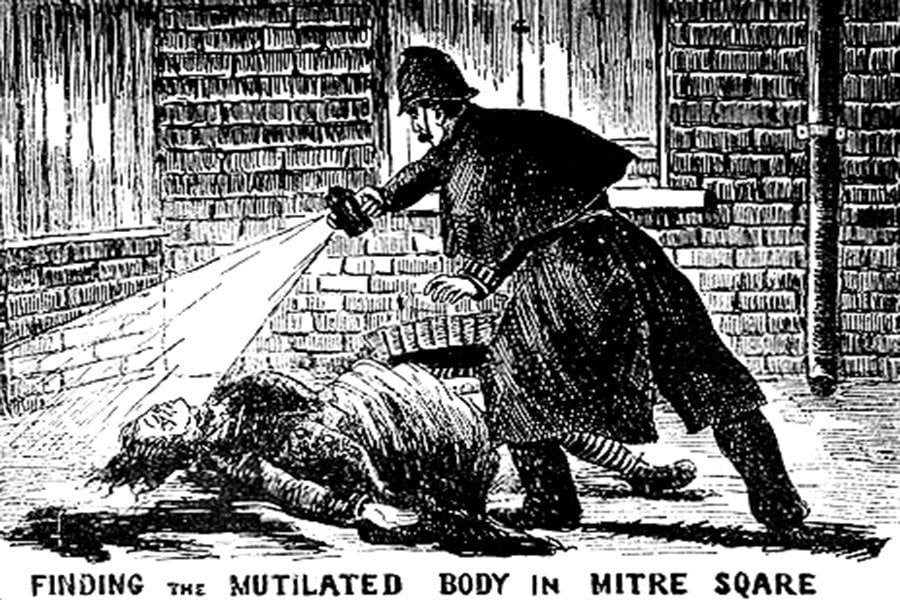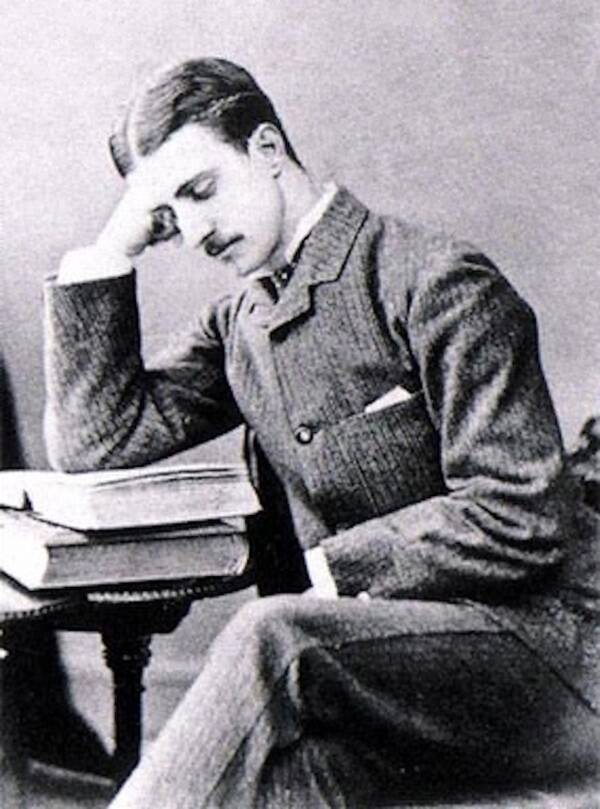A mysterious serial killer who murdered at least five women in London in the late 1800s, Jack the Ripper has never been identified.
In 1888, an enigmatic serial killer brutally slaughtered five women in London’s impoverished Whitechapel district. Dubbed “Jack the Ripper,” the murderer has never been identified, despite the many suspects who have been suggested throughout the years. Even now, more than a century after the gruesome crime spree occurred, the same enduring question about the killer’s identity still lingers on: Who was Jack the Ripper?
Though all involved in the case have been dead for decades, historians and professional and amateur sleuths alike have all attempted to glean the identity of Jack the Ripper to this day.
Some theories carry little weight and amount to nothing more than outlandish speculation, but there are a few Jack the Ripper suspects that have legitimate cases against them.

Wikimedia CommonsAn illustration of the discovery of the mutilated body of Catherine Eddowes, one of Jack the Ripper’s victims, as depicted in The Illustrated Police News. Circa 1888.
Many of these suspects were once likewise investigated by the police — but ultimately, none of them were ever charged with the murders of victims Mary Ann Nichols, Annie Chapman, Elizabeth Stride, Catherine Eddowes, and Mary Jane Kelly. Others evaded speculation at the time, only to have their names entered into the conversation years later. In fact, for several suspects, historical evidence uncovered in the decades following the killings linked them to the crimes, though most of this evidence unfortunately came too late.
With all of that said, here are seven of the most intriguing Jack the Ripper suspects — and the eerie stories behind them.
Montague John Druitt: The “Son Of A Surgeon” Who Became A Jack The Ripper Suspect

Wikimedia CommonsMontague John Druitt, a barrister and teacher who is one of the most infamous Jack the Ripper suspects.
Who was he?
Montague John Druitt was born in 1857 and grew up privileged. The son of a local surgeon, Druitt was known for being a bright child and eventually attended Winchester College followed by New College, Oxford.
Aside from being academically gifted, Druitt was also talented at playing sports, especially cricket. After finishing school in 1880, he decided to enter a career in law, becoming a barrister in London around 1885.
Druitt also took a second job as a teacher at a boarding school, but was dismissed from that position in November 1888 for an unknown reason. Newspapers at the time reported that he “had got into serious trouble at the school.” It’s still unclear what that trouble was, but Druitt went missing shortly after his dismissal.
About a month later, in December 1888, his dead body was found floating in the River Thames. It was believed that he had died by suicide.
Why is he one of the Jack the Ripper suspects?
Shortly before Druitt’s disappearance and death in 1888, Jack the Ripper claimed his final victim, Mary Jane Kelly. Shortly thereafter, rumors began to spread that the Ripper had drowned in the River Thames.
Then, in 1891, Henry Richard Farquharson, a member of Parliament from West Dorset, England started saying that Jack the Ripper was “the son of a surgeon” who had committed suicide after the last murder.
Before long, journalists, law enforcement officers, and other public figures began corroborating this claim. Since Druitt was the son of a surgeon who had died by suicide in the Thames after Kelly’s death, some contemporary investigators began to believe they’d uncovered Jack the Ripper’s identity.
Assistant Chief Constable Sir Melville Macnaghten even named Druitt as one of the most likely suspects in the Whitechapel murders in his private memoirs in 1894.
Does the case against him hold up?
Not really.
Even though many people of the time seemed to have genuinely suspected Druitt, there is little more than vague circumstantial evidence linking him to the murders. Beyond that, Druitt himself was not trained in any medical techniques, something many people suspect the true Ripper was.
Furthermore, his suicide can be more reasonably explained by a note he left behind for his brother: “Since Friday I felt that I was going to be like mother, and the best thing for me was to die.”
Druitt’s mother was known to have suffered from depression and was eventually institutionalized because of it. And some of his other relatives committed suicide, which likely meant that depression and other mental health issues ran in Druitt’s family.
In addition, some reports claim that Druitt was either working at his law practice or playing cricket during the times that the Jack the Ripper murders took place, meaning he could have had solid alibis.
All in all, the only things tying him to the murders were his time and place of death, as well as the hearsay of some law enforcement officers.





